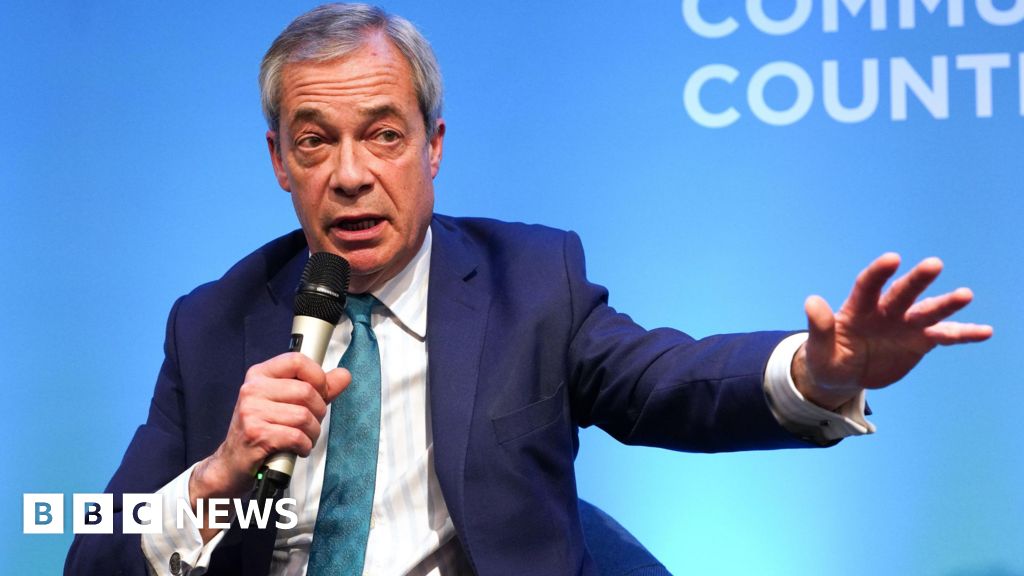
Nigel Farage Defends Ukrainian President Zelensky Amid Controversial Trump Comments
Reform UK leader Nigel Farage has come to the defense of Ukrainian President Volodymyr Zelensky, asserting that the leader is not a dictator, despite remarks made by former US President Donald Trump who had labeled Zelensky as one.
Farage emphasized the importance of taking Trump’s comments seriously but urged that not every expression from the former president should be interpreted literally. In an interview with GB News, Farage stated, “Zelensky is not a dictator,” adding that it is essential for Ukrainians to have a timeline for potential elections.
The Reform UK leader proposed that elections could occur even before the conflict reaches a resolution, suggesting, “There needs to be a framework so that Ukrainian citizens can make their voices heard regarding a peace agreement.” Notably, Zelensky’s five-year presidential term is set to conclude in May 2024; however, elections have been on hold since martial law was enacted following the Russian invasion.
Farage faced criticism for not disassociating himself from Trump’s remarks earlier, including backlash from prominent supporters like Tim Montgomerie. While on a flight to Washington, D.C., where he is scheduled to speak at the Conservative Political Action Conference, Farage’s stance drew additional scrutiny.
Liberal Democrat leader Sir Ed Davey condemned Farage, stating that he chose to justify Trump’s "outlandish comments" instead of outright condemning them. He remarked, "It appears that he is acting as a spokesperson for Trump, rather than representing British interests."
Conservative shadow defense secretary James Cartlidge also questioned the rationale behind imposing a timetable for elections in Ukraine. He pointed out, “This is not a local government reform; this is an existential war, and the timeline for peace remains uncertain.” Cartlidge further asked whether Putin should also be required to schedule elections, noting that he is, in fact, a dictator.
Farage’s remarks follow a strong endorsement of Zelensky from Prime Minister Sir Keir Starmer, who defended him as a "democratically elected leader." Starmer spoke with Zelensky on Wednesday, affirming that it is "entirely reasonable" for Ukraine to suspend elections amid wartime conditions, akin to what the UK did during World War II.
Kemi Badenoch, the leader of the Conservative Party, also supported Zelensky and urged Sir Keir to demonstrate leadership by traveling to Washington. Next week, Starmer is set to meet Trump in person for the first time since Trump took office.
Additionally, UK Defense Secretary John Healey compared Zelensky’s situation to that of Winston Churchill, who suspended elections during World War II. Healey, in Norway negotiating a new defense agreement to counter Russian threats in the Arctic, affirmed the UK’s commitment to supporting Ukraine during this challenging period.
President Vladimir Putin launched a full-scale invasion of Ukraine in 2022, following years of conflict between Russian-backed separatists and Ukrainian forces in the eastern region. Trump has previously pledged to negotiate a swift cessation of hostilities if he were to win the US presidential election. This week saw diplomatic talks occur in Saudi Arabia involving US and Russian diplomats, excluding Ukraine and European nations, but the emerging discord between Trump and Zelensky raises concerns over the potential for peace negotiations.
Trump’s criticisms were ignited after Zelensky accused him of operating within a "bubble" influenced by Russian disinformation. In response, Trump criticized Zelensky’s performance, insinuating that Ukraine bore responsibility for the conflict’s outbreak.
When asked if he agreed with Trump that Ukraine was culpable for the invasion, Farage clarified, stating, "It was Putin who invaded, and his actions were unjustifiable." He emphasized the necessity for Ukraine to secure adequate safety measures to foster a just and lasting peace.
Farage has garnered criticism for his perspectives regarding the Ukraine war; notably, he previously suggested that Western actions, including the expansion of NATO and the European Union, had provoked Russia. He defended these views in a Telegraph article, asserting he was not an "apologist" for Putin but highlighted that there are consequences to "provoking a Russian bear."









